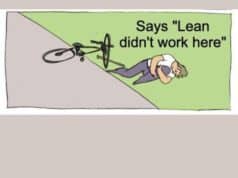PEPCON disaster – Wikipedia, the free encyclopedia
 In some Saturday afternoon background TV watching, my ears perked up when I heard about this story on the History Channel, from 1988. A factory, in Nevada (just outside of Las Vegas) had produced a chemical that was used for the space shuttle program as a rocket fuel accelerant.
In some Saturday afternoon background TV watching, my ears perked up when I heard about this story on the History Channel, from 1988. A factory, in Nevada (just outside of Las Vegas) had produced a chemical that was used for the space shuttle program as a rocket fuel accelerant.
The show claimed that, after the Challenger disaster that grounded the program (killing demand for the chemical), the company “kept producing it anyway, stockpiling it, and hoping to eventually sell it.”
According to Wikipedia:
With the space shuttle program frozen, no government instruction dictating where to ship the product, and no mandated storage procedure or proper storage facilities for such large quantities of product, PEPCON stored almost all manufactured ammonium perchlorate on-site, in plastic drums on campus parking lots. An estimated 4000 tons of the finished product were stored at the facility at the time of the disaster.
Well, wouldn't you know, an employee was careless with a cigarette — who allows smoking in a facility with explosive chemicals!?!?!?!? — and one barrel exploded, flying through the air, landing in the middle of the main storage stockpile.
According to fire responders, the plan at the factory had apparently been “in case of fire, run like hell,” but they arrived to find employees trying to put out the initial fire with regular hoses. A huge explosion ensued with the force of 250 tons of dynamite equiv (3.5 on richter scale) that was felt at the Strip, 10 miles away.
Two people were killed in what should probably be considered an utterly preventable disaster. It makes me wonder why it was cheaper or somehow better to keep producing the product, just to pile up dangerous inventory. Is there some chemical engineering reason that someone knows about?
It seems like an interesting case study in failure mode planning, basic safety, and error proofing, not to mention the “waste of overproduction.” I don't think I've ever heard of a case where overproduction had been deadly.
Subscribe via RSS | Lean Blog Main Page | Podcast | Twitter @MarkGraban
What do you think? Please scroll down (or click) to post a comment. Or please share the post with your thoughts on LinkedIn – and follow me or connect with me there.
Did you like this post? Make sure you don't miss a post or podcast — Subscribe to get notified about posts via email daily or weekly.
Check out my latest book, The Mistakes That Make Us: Cultivating a Culture of Learning and Innovation:









